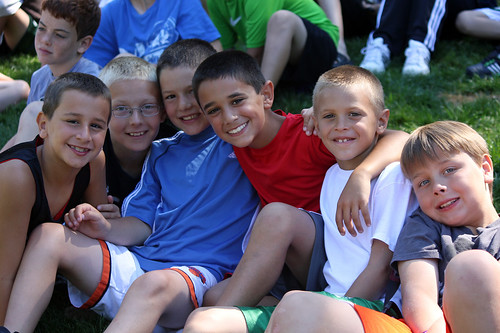 Summer is winding down. Wait – we just got here!
Summer is winding down. Wait – we just got here!
That’s how fast camp goes. One day a kid boards the bus with nervous anticipation. The next, he heads home on the same bus with a smile and a lifetime of memories.
They don’t even realize that – in addition to having tons of fun – they’ve grown a lot.
The other day, we asked a few of our campers what they learned this summer. Here’s what they shouted – er, said:
- Counselors are cool. We talked about everything.
- Before I went to camp, people said the food stinks. It didn’t.
- I learned I could swim a lot farther than I thought. But the waterfront guys told me I could do it all along.
- It’s impossible for my counselor to pack everything back up the way my mom did before camp.
- It’s okay to wake up early if you don’t know what time it is.
- I’m not sure, but I may ask my parents if I can do yoga when I get home.
- Sometimes when people say “hurry up, you’ll be late,” they really mean it. Sometimes they don’t.
- I always thought I liked lacrosse better than soccer. Now I’m not sure.
- I saw my sister less this summer than I do at home. But it was still nice having her here.
- No one will clean up your cabin for you, except you.
- It’s really nice if your parents write a lot, even if they don’t say much in their letters.
- It’s hard to canoe when your paddle falls in the water.
- I have eight new best friends.
- When they tell you to bring a sweatshirt and a blanket, they know what they are talking about.
- I was positive I couldn’t live without my cell phone. Now I forget where I put it in my room before I left.
- How come no one ever told me that waterskiing was so much fun?
- It’s good to go on trips away from camp. And it’s good to come back.
- I like my new nickname a lot.
- When I came to camp I missed my dog. When I go home I’m going to miss my horse.
- Maine is an awesome state!
- It feels like I grew five inches, but the nurse says only one.
- I still can’t sing, but our play was amazing anyway.
- My goal in life is to come back as a counselor.


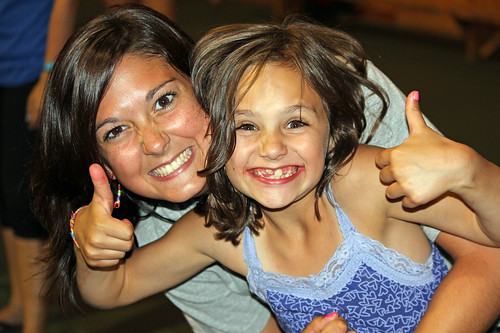
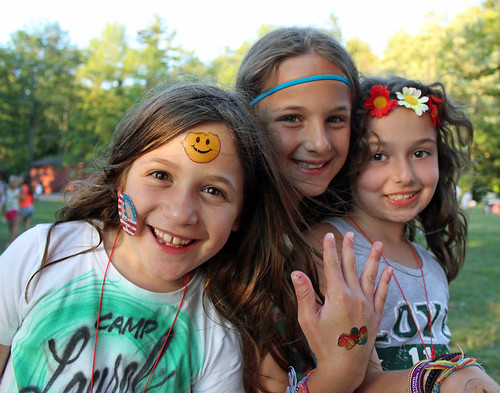
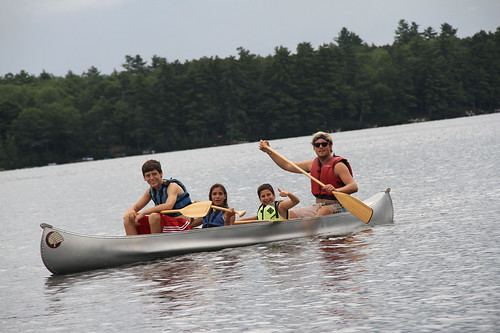

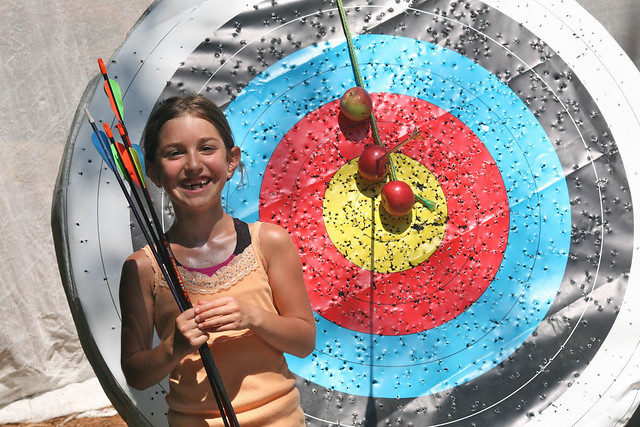

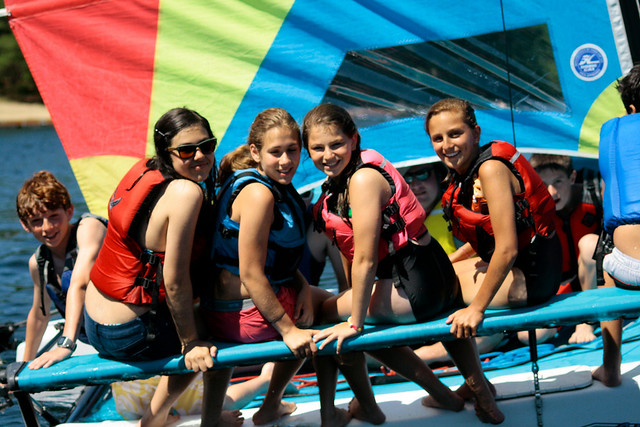


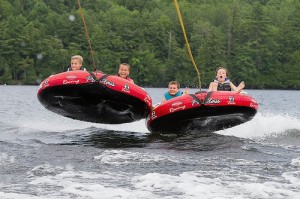
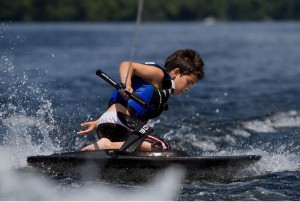
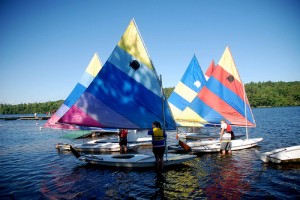
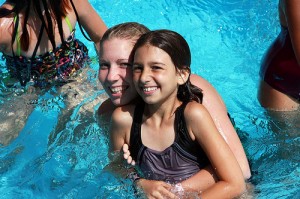
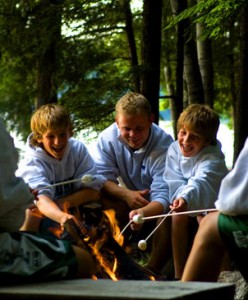
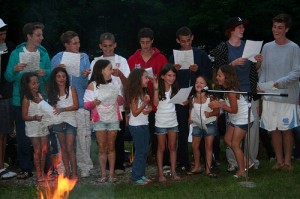
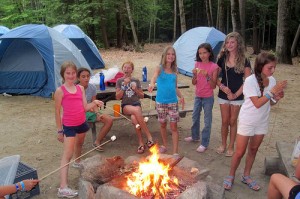
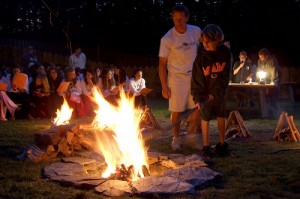
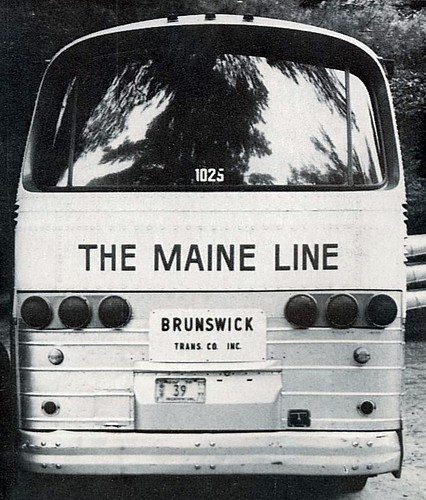
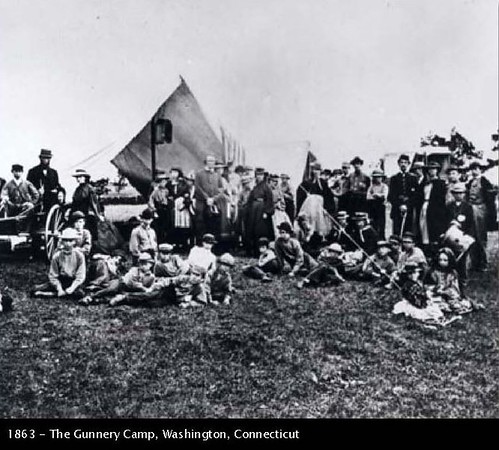
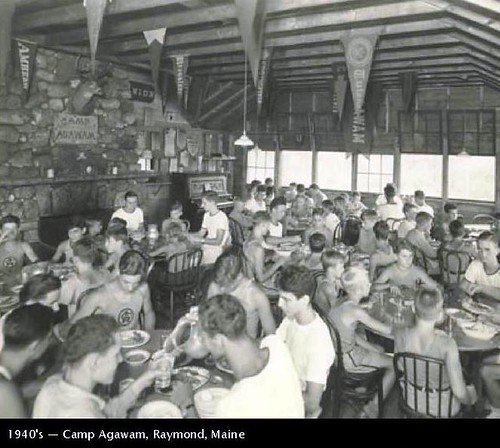
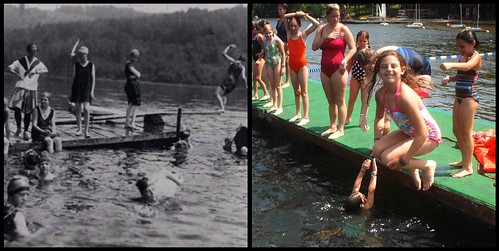
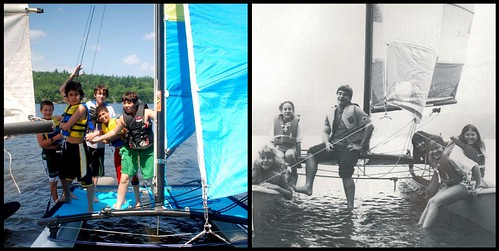
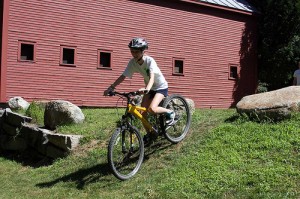
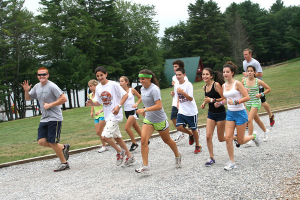
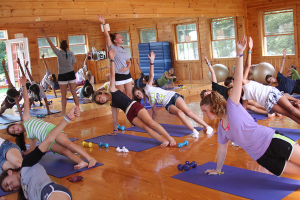
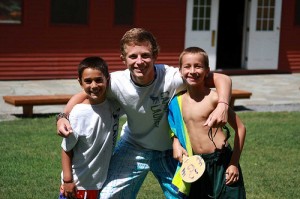
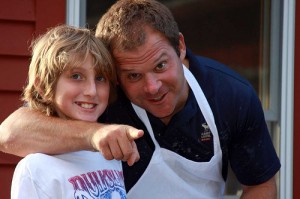
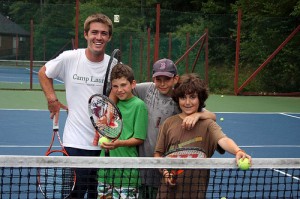
 When I think about “camp songs,” I immediately think about singing around campfires, but each year at camp also has a distinct popular music soundtrack. Recently, campers weighed in on Twitter about the tunes that remind them of past summers and that got me thinking about what the United States and camp was like in the 1960s and 1970s.
When I think about “camp songs,” I immediately think about singing around campfires, but each year at camp also has a distinct popular music soundtrack. Recently, campers weighed in on Twitter about the tunes that remind them of past summers and that got me thinking about what the United States and camp was like in the 1960s and 1970s.
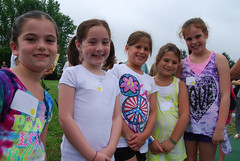
 Moving from one year towards the next has me thinking about summer camp in the past and future. For over a century, summer camps in the United States have helped millions of American children develop and grow as well as start negotiating their worlds outside of immediate families and neighborhoods. At first, a small number of elite camps only served boys, and primarily Protestant boys at that — but by the time the prosperous years after World War II were in full swing, approximately one in six American children went to camp, usually for eight weeks at a time. Throughout the 20th century, camps changed to serve all children including varying camp lengths, welcoming girls, and opening their gates to all races.
Moving from one year towards the next has me thinking about summer camp in the past and future. For over a century, summer camps in the United States have helped millions of American children develop and grow as well as start negotiating their worlds outside of immediate families and neighborhoods. At first, a small number of elite camps only served boys, and primarily Protestant boys at that — but by the time the prosperous years after World War II were in full swing, approximately one in six American children went to camp, usually for eight weeks at a time. Throughout the 20th century, camps changed to serve all children including varying camp lengths, welcoming girls, and opening their gates to all races. As summer camps have become more inclusive, the world that children experience both in the United States and globally has also become very different. Many children have access to a much broader world through travel, moving images, or other technologies, but some things just haven’t changed. For instance, our pre-college age identities are still informed by interactions with peers and people connected to our individual worlds, directly translating to the people we make direct contact with. While community is still central to human development, many of our daily communities are no longer bound by neighborhood blocks tied to local shared institutions and celebrations. Our families and extended social circles filter across state, nation and even electronic borders.
As summer camps have become more inclusive, the world that children experience both in the United States and globally has also become very different. Many children have access to a much broader world through travel, moving images, or other technologies, but some things just haven’t changed. For instance, our pre-college age identities are still informed by interactions with peers and people connected to our individual worlds, directly translating to the people we make direct contact with. While community is still central to human development, many of our daily communities are no longer bound by neighborhood blocks tied to local shared institutions and celebrations. Our families and extended social circles filter across state, nation and even electronic borders. Past, present and future campers are all part of a lively and creative shared community where remembering a song, a person, an event, a skit, food or a poignant moment can instantly transport peers back to camp. So, what you would add to a time capsule to “capture” the timeless spirit of camp and why? We’d love to hear what alumni and present campers would include in an electronic time capsule, so get scanning or writing up those memories and lessons learned! If you’re not sure how to get started, ask questions in the comments below!
Past, present and future campers are all part of a lively and creative shared community where remembering a song, a person, an event, a skit, food or a poignant moment can instantly transport peers back to camp. So, what you would add to a time capsule to “capture” the timeless spirit of camp and why? We’d love to hear what alumni and present campers would include in an electronic time capsule, so get scanning or writing up those memories and lessons learned! If you’re not sure how to get started, ask questions in the comments below!